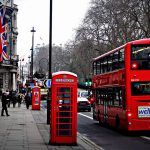Concessionary bus travel for older and disabled people delivers real and significant economic and social benefits, new research has found.
Taking away the bus pass could cost the UK economy considerably in excess of £1.7 billion a year due to a decline in volunteering and poorer health and wellbeing amongst older people.
Importantly, the ground-breaking research – conducted by KPMG LLP and commissioned by Greener Journeys, the campaign to promote sustainable travel – confirms the bus pass delivers a huge range of wider benefits to the UK’s society and economy.
Using official Department for Transport (DfT) guidelines, it found that for every £1 spent on the bus pass, over £2.87 of benefits were generated, high value for money according to official DfT guidance.
The study reveals the scheme enables older and disabled people to have fuller and more efficient access to the services they need, and to take part in activities that would not be affordable without the free bus pass.
This freedom to travel has a wide range of multi-faceted and quantifiable social, economic and environmental benefits, including that older people:
- Can contribute more actively as volunteers. If the concessionary scheme were to be taken away, some £297 million worth of annual volunteering benefits could be lost
- Are more physically active, resulting in improved health and wellbeing with knock on benefits for health services. These benefits are worth an estimated £458 million annually
- Make fewer journeys by car, meaning our air is cleaner and our roads are safer and less congested. Together these benefits are worth an estimated £175 million a year
- Underpin and improve the rest of the bus network. When more people use the bus, operators need to provide additional services, making buses more frequent. If the concessionary scheme were to be taken away, some £447 million worth of benefits to other bus users could be lost
However, a number of important benefits the bus pass brings to the economy and wider society are difficult to quantify and therefore not fully statistically recognised in the report, meaning the actual overall boost to the UK economy will be significantly higher than £1.7 billion annually.
Key areas which would require additional analysis to calculate the overall benefit include that older people:
- Feel less lonely and isolated, something crucial to good mental health and well-being, with significant benefits for health services. Research has shown that loneliness is a comparable risk factor for early death as smoking 15 cigarettes a day, and is worse for older people’s health and wellbeing than obesity and physical inactivity
- Are more able to look after children and care for others. Older people overall provide estimated benefits of £34 billion in social care and £2.7 billion in child care every year
- Shop more on their high streets, increasing retail and commercial activity. Overall the value of spending by older people to the economy is estimated at over £76 billion per year
- Can travel independently, delivering savings on patient, social services and community transport
The study also found that if the scheme were to be abolished £152 million in tax revenues would be lost annually, with older people being forced to switch from spending on taxed goods and services to untaxed bus travel.
Overall the scheme is extremely popular, with four out of five of those eligible taking up bus passes, and central to facilitating a large number of bus trips – across Great Britain more than 1.2 billion trips were taken by 12 million pass holders in 2012/13.
According to Passenger Focus research, there is also overwhelming public support for the scheme, with 95% of passengers agreeing that older and disabled people should be entitled to a free bus pass.
The benefits are also more likely to go to those on low or moderate incomes and those without access to a car. With the UK population over 60, and therefore those eligible for a free bus pass continuing to rise, the benefits to the UK’s society and economy will grow concurrently.



